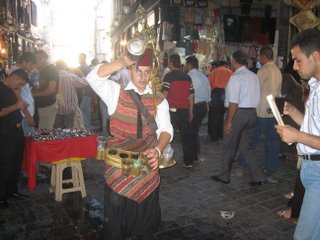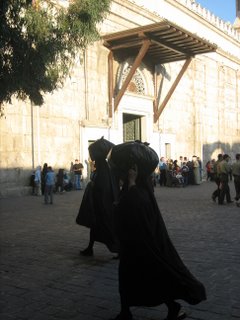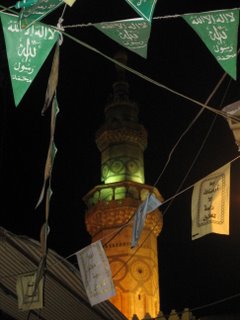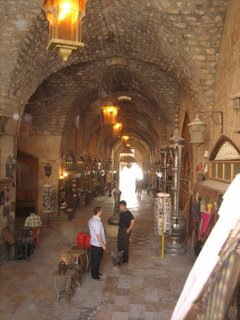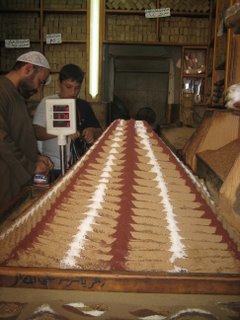Last week Jordan celebrated the former King Hussein's birthday and we decided to rent a car and get out of Amman for the day. We have visited most of the popular tourist sites in Jordan such as Petra, Jerash and the Dead Sea and plan to start exploring the more obscure sites that many don't get to see, such as King Herod's desert palace where John the Baptist was beheaded or Pella, another Roman city like Jerash. But for this trip we decided to travel about two hours north of Amman to Um Qais--one of our favorite places to visit in Jordan. According to the Bible, Um Qais--called Gadara at the time--is where Jesus cast demons out of two men into a herd of pigs.
Matthew 8:28-34
They landed in the country of Gadarenes (Jordan) and were met by two madmen, victims of demons, coming out of the cemetery. The men had terrorized the region for so long that no one considered it safe to walk down that stretch of road anymore. Seeing Jesus, the madmen screamed out, "What business do you have giving us a hard time? You are the Son of God! You weren't supposed to show up here yet!" Off in the distance a herd of pigs was browsing and rooting. The evil spirits begged Jesus, "If you kick us out of these men, let us live in the pigs." Jesus sad, "Go ahead, but get out of here!" Crazed, the pigs stampeded over a cliff into the sea and drowned. Scared to death, the swineherders bolted. They told everyone back in town what had happened to the madmen and the pigs. Those who heard about it were angry about the drowned pigs. A mob formed and demanded that Jesus get out and not come back.
We enjoy going to Um Qais because it is cool to see a place where Jesus performed miracles and because it is out in the country, away from the hectic pace of Amman. It is a place where Jordan, Israel and Syria come together, and from it there are amazing views of the Golan Heights--land that is contested between Israel and Syria--the Sea of Galilee and the Jordan River Valley. Sitting in Jordan overlooking this beautiful scenery in the peacefulness of the countryside, we are reminded why we are here and continue to pray and work for peace between these close neighbors.
Below are some pictures of Um Qais and our drive back to Amman through the Jordan Valley. ENJOY!
Matthew 8:28-34
They landed in the country of Gadarenes (Jordan) and were met by two madmen, victims of demons, coming out of the cemetery. The men had terrorized the region for so long that no one considered it safe to walk down that stretch of road anymore. Seeing Jesus, the madmen screamed out, "What business do you have giving us a hard time? You are the Son of God! You weren't supposed to show up here yet!" Off in the distance a herd of pigs was browsing and rooting. The evil spirits begged Jesus, "If you kick us out of these men, let us live in the pigs." Jesus sad, "Go ahead, but get out of here!" Crazed, the pigs stampeded over a cliff into the sea and drowned. Scared to death, the swineherders bolted. They told everyone back in town what had happened to the madmen and the pigs. Those who heard about it were angry about the drowned pigs. A mob formed and demanded that Jesus get out and not come back.
We enjoy going to Um Qais because it is cool to see a place where Jesus performed miracles and because it is out in the country, away from the hectic pace of Amman. It is a place where Jordan, Israel and Syria come together, and from it there are amazing views of the Golan Heights--land that is contested between Israel and Syria--the Sea of Galilee and the Jordan River Valley. Sitting in Jordan overlooking this beautiful scenery in the peacefulness of the countryside, we are reminded why we are here and continue to pray and work for peace between these close neighbors.
Below are some pictures of Um Qais and our drive back to Amman through the Jordan Valley. ENJOY!

A young boy on his donkey, helping to herd sheep in the Jordan Valley.

The sheep herd.

The sheep with the hills surrounding the valley in the distance.

The main street through Um Qais/Gadara, lined with columns.
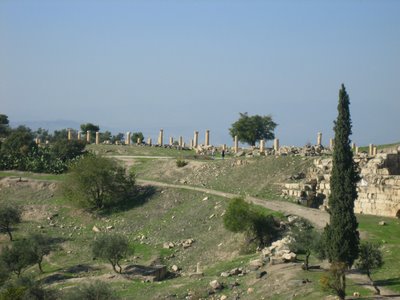
The same street, from a different view.
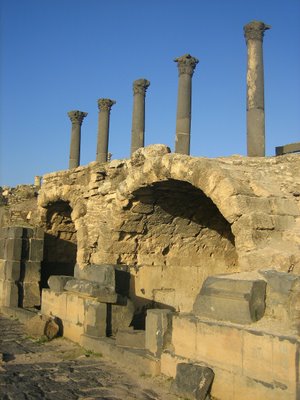
The ruins of old shop stalls in Um Qais/Gadara. The columns in the background--as well as many of the bricks at the site--are made with black basalt, which is a unique feature of the city.
 The top of a black basalt column.
The top of a black basalt column. 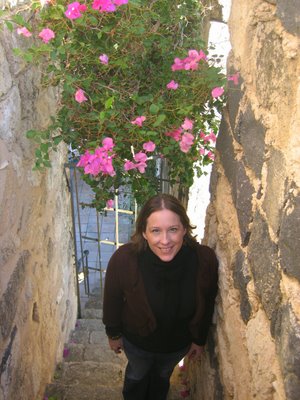
Annamarie on the steps of a lookout point at the restaurant at Um Qais.

Looking out from Um Qais toward the Golan Heights on the right, with the Sea of Galilee and Israel and Palestine toward the left.

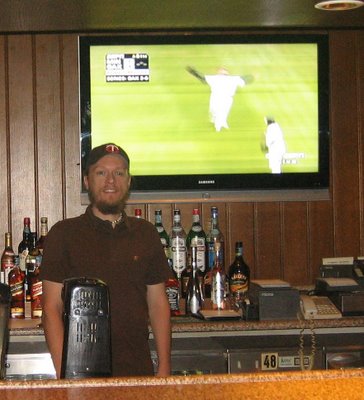
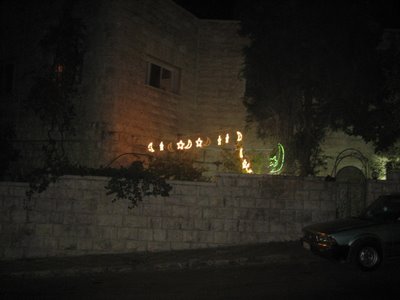

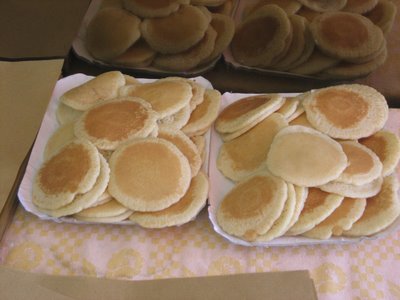
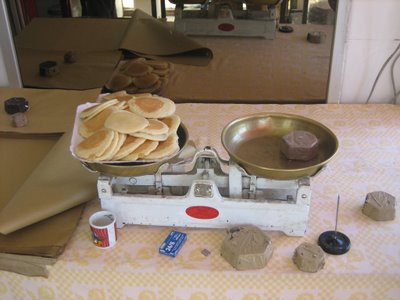

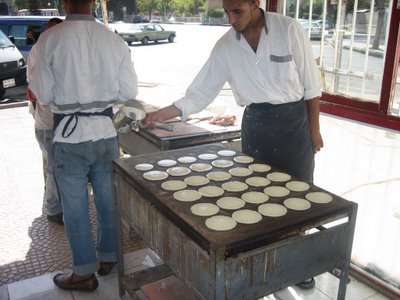
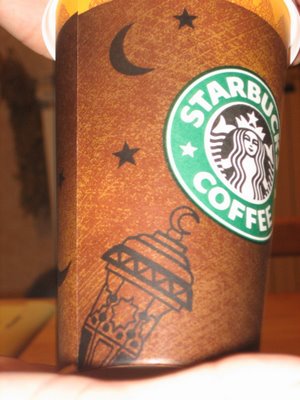
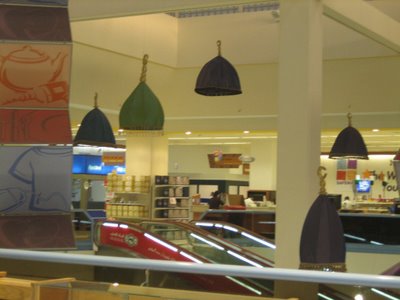


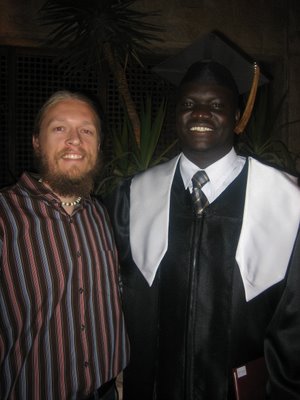
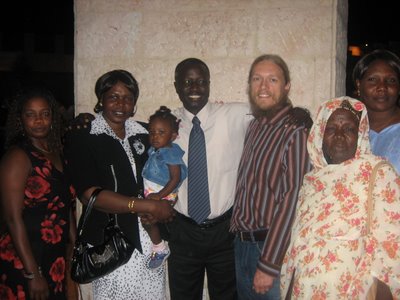






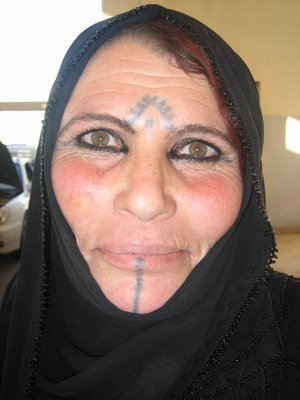



 In the United States there is Barbie and in the Middle East there is Fulla. Fulla is the Muslim alternative to Barbie and she is sometimes sold with a prayer mat but always with a head covering. Fulla is huge here in Jordan. Everywhere you go you see her - on chewing gum, sandals and bikes. Our friends daughter even has a bedroom decked out in Fulla sheets and drapes. I took this picture at a corner store the other day - happy to see the two backpacks side by side outside the store.
In the United States there is Barbie and in the Middle East there is Fulla. Fulla is the Muslim alternative to Barbie and she is sometimes sold with a prayer mat but always with a head covering. Fulla is huge here in Jordan. Everywhere you go you see her - on chewing gum, sandals and bikes. Our friends daughter even has a bedroom decked out in Fulla sheets and drapes. I took this picture at a corner store the other day - happy to see the two backpacks side by side outside the store.


